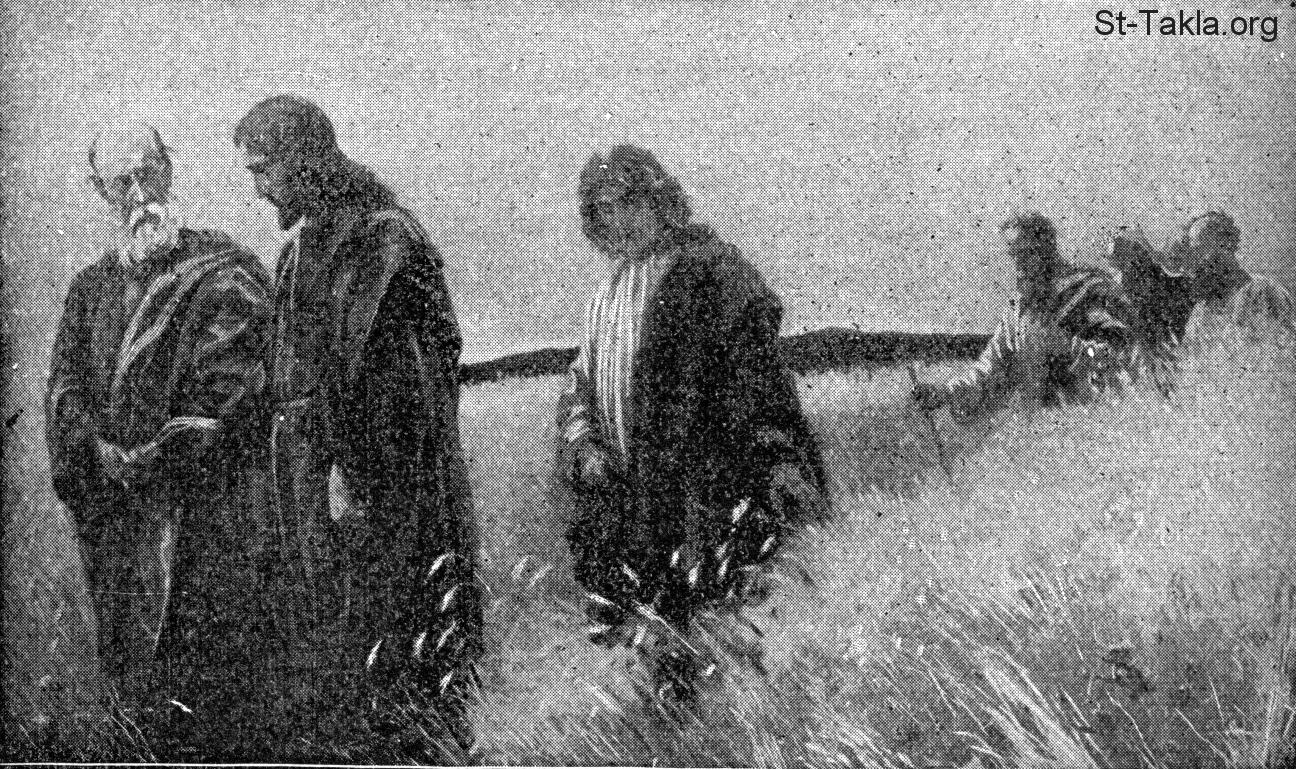The theme of yesterday’s service at my church was the story in Mark 2:23-28. My wife referred to it as Jesus taking the disciples on a “field trip” – literally! – since the story is set in a field.
 The story is often viewed as implausible, being understood to envisage Pharisees hanging around fields in the hope of just possibly catching Jesus doing something inappropriate. But the story’s setting seems less contrived if we envisage a larger group of Jews, including some Pharisees as well as Jesus and his disciples, happening to be walking along the road together on the Sabbath when this occurs.
The story is often viewed as implausible, being understood to envisage Pharisees hanging around fields in the hope of just possibly catching Jesus doing something inappropriate. But the story’s setting seems less contrived if we envisage a larger group of Jews, including some Pharisees as well as Jesus and his disciples, happening to be walking along the road together on the Sabbath when this occurs.
Or perhaps we should read a bit more into the mention of John the Baptist and his disciples in the immediate context, and view this as originally having reflected a disagreement between Jesus and other disciples of John, during the period when Jesus was still part of John’s movement. Perhaps moments such as this one were part of a cumulative process eventually leading to Jesus carrying out his own independent ministry. And perhaps it was the defense of the behavior of other disciples of John that led those individuals to follow him when he left the movement. The Pharisees were perhaps later substituted to avoid having Jesus criticize John (the early Christian movement sought to harness John’s popularity and to avoid whenever possible depicting Jesus as criticizing John or vice versa.
Be that as it may, in this story we are presented a striking approach to Law – even Law thought to be of divine origin – that runs counter to an approach that a significant number of people have in our time, including many who (rather ironically) consider themselves Jesus’ followers.
The gist of Jesus’ point may be summarized like this: Laws like that regarding the Sabbath are made for human benefit, and so any interpretation of laws that puts rigid obedience over human well-being is wrongheaded in principle.
If one were to apply this principle today, how much of contemporary Christian practice, I wonder, might have to be revised or discarded? How much of Christian thinking about salvation, church, ritual, the sacred, and interaction with other human beings elevates dogma, doctrine, ritual, liturgy, law, or something else above the principles that Jesus himself said should guide the use and interpretation of laws?
Before concluding, presumably I should mention one more point, lest someone claim that I had intentionally omitted it. This passage in Mark is also famous for the author (or, if the author recorded the story accurately, then Jesus himself) botching which high priest features in the story about David and the eating of the sacred bread.
But discussions of the “inerrancy” or errant character of the passage are perhaps a distraction from something even more fundamentally challenging to fundamentalism than the presence of an error in the text: Jesus himself saying that rigid rule-following which ignores the rationale for giving laws in the first place, or does not grasp that that rationale is the well being of humans, is fundamentally mistaken.













